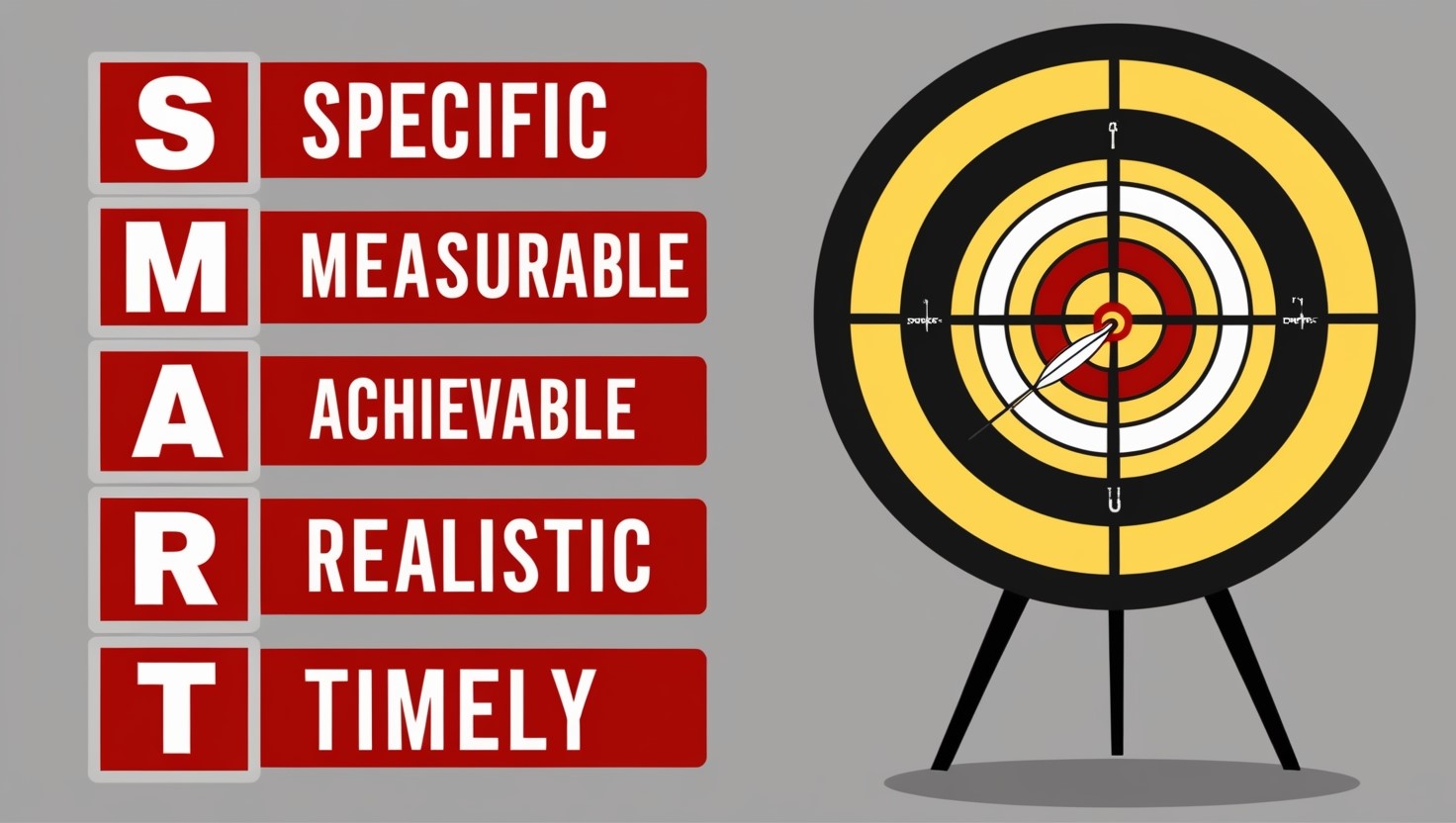The Age-Old Debate, Renting vs. Buying
Deciding whether to rent or buy a home is one of the most significant financial choices you’ll ever face. It’s a decision that impacts not only your living situation but also your long-term financial health and lifestyle. While homeownership is often seen as a symbol of stability and investment, renting offers flexibility and fewer responsibilities. Before making this major commitment, it’s essential to carefully weigh the pros and cons of each option. In this article, we’ll explore the key questions you should ask yourself before deciding whether renting or buying is the best choice for your unique situation.
1. What Are Your Financial Goals?
Your long-term financial goals play a significant role in determining whether renting or buying is the right decision for you. Owning a home is often seen as a path to building wealth through equity, as your mortgage payments contribute to ownership of a tangible asset that can appreciate over time. However, this isn’t the only way to grow your wealth, and renting may align better with your goals if flexibility and investing in other assets are more important to you.
If you’re looking to build equity and value having a place to call your own, buying a home may fit your goals. Homeownership can also offer tax benefits and the potential for long-term appreciation in property value. However, for those who prioritize liquidity, mobility, or investing in other opportunities—such as stocks or starting a business—renting may make more sense. Renting allows you to keep your capital more liquid and easily accessible, rather than tied up in a property.
Example: A young professional may prefer to rent while allocating extra savings into the stock market, focusing on higher returns through diversified investments. On the other hand, a family looking to settle down in a stable environment may see homeownership as an essential part of their wealth-building and lifestyle goals.
Before making your decision, ask yourself: Are you focused on building equity through real estate, or do you prefer to maintain flexibility and invest in other areas? Your answer will guide whether renting or buying aligns with your broader financial strategy.
2. How Long Do You Plan to Stay in the Area?
Time is a critical factor when deciding whether to rent or buy. Generally, buying a home makes more financial sense if you plan to stay in the area for at least 5-7 years. This timeframe allows you to recover the upfront costs associated with purchasing, such as the down payment, closing costs, and potential property appreciation. If you sell a home too soon, the transaction costs of buying and selling may outweigh any equity you’ve built.
If you’re unsure about how long you’ll stay in a particular location—perhaps due to job changes, family considerations, or lifestyle flexibility—renting may be the better option. Renting offers flexibility, allowing you to move more easily without the burden of selling a property or worrying about fluctuating home values. For someone who may relocate frequently, renting can provide peace of mind and financial agility.
Example: A professional working in a career that requires frequent relocations (such as consulting or sales) might find renting more practical, as it allows for easier transitions between cities. On the other hand, a family with long-term stability in their job and community may find buying a home to be a better choice for settling down and building equity.
Before deciding, ask yourself: Are you committed to staying in the area for the foreseeable future, or do you anticipate moving within the next few years? Your answer will help guide your decision on whether renting or buying better aligns with your lifestyle and plans.
3. Can You Afford the Upfront Costs of Buying?
Buying a home comes with significant upfront costs that go beyond just the price of the property. One of the biggest factors to consider is whether you’re financially prepared to cover these initial expenses. Typically, purchasing a home requires a down payment of 10-20% of the home’s value, along with closing costs, which can include attorney fees, appraisal fees, and home inspections. These upfront costs can amount to thousands of dollars, making affordability a key consideration.
In addition to the down payment and closing costs, homeownership comes with ongoing financial responsibilities like property taxes, homeowner’s insurance, and regular maintenance. Unlike renting, where maintenance and repairs are typically the landlord’s responsibility, homeowners must budget for potential expenses such as replacing a roof, fixing a heating system, or upgrading appliances.
If you don’t have enough saved for a down payment or are unsure about covering the costs of repairs, renting might be the wiser choice for now. Renting allows you to avoid these upfront and long-term financial commitments while giving you more time to build your savings.
Example: Let’s say you want to buy a home valued at $300,000. A 20% down payment would require $60,000 upfront, and closing costs could add another $5,000-$10,000. On top of that, you’ll need to consider the cost of any potential repairs or renovations. For someone who doesn’t have these funds readily available, renting a similar property might be more financially feasible in the short term.
Before making your decision, ask yourself: Do you have enough savings to comfortably cover the upfront and ongoing costs of buying a home? If the answer is no, renting could give you more financial flexibility until you’re better prepared for homeownership.
4. What Are the Current Market Conditions?
The state of the real estate market plays a crucial role in determining whether buying or renting is the better financial decision. Market conditions can vary widely based on location, interest rates, housing supply, and broader economic factors. Before making a choice, it’s important to assess whether it’s a buyer’s market, a seller’s market, or a balanced market.
In a buyer’s market, there is an abundance of homes for sale, and prices tend to be lower due to reduced demand. This can create opportunities for buyers to negotiate better deals and make a purchase at a favorable price. Low interest rates also make mortgages more affordable, allowing buyers to lock in lower monthly payments over the long term.
On the other hand, in a seller’s market, housing inventory is low, and competition among buyers drives up prices. In such conditions, buying a home might not be the best financial move, as you could end up overpaying. Renting, in this case, might be a smarter option while waiting for market conditions to cool down or stabilize.
Additionally, interest rates heavily influence the affordability of a mortgage. In periods of low interest rates, buyers can secure more favorable loan terms, potentially reducing the overall cost of homeownership. Conversely, when interest rates rise, it can increase the cost of borrowing, making buying less attractive.
Example: During the housing boom in 2021, many buyers found themselves in bidding wars, driving up home prices. In this environment, some potential buyers chose to continue renting, recognizing that they would likely overpay for a home in a highly competitive market. By waiting for market conditions to improve, they positioned themselves for a better deal down the road.
Before deciding to buy or rent, ask yourself: Are current market conditions favorable for buyers, or is it more prudent to rent and wait? Keeping an eye on housing prices, inventory levels, and interest rates can help you make a more informed decision.
5. What Is Your Financial Health?
Your financial health is a critical factor in determining whether buying or renting a home is the right choice. Before committing to a mortgage, it’s essential to assess your current financial situation, including your income stability, credit score, savings, and overall debt levels. A healthy financial profile is necessary for securing a mortgage with favorable terms, as well as ensuring that homeownership won’t leave you financially strained.
Key Financial Factors to Consider:
- Stable Income: Do you have a steady, reliable source of income that can comfortably cover mortgage payments, utilities, and other homeownership costs? Lenders prefer borrowers with stable employment and consistent income streams.
- Credit Score: A strong credit score is crucial for securing a mortgage with low interest rates. A higher credit score can save you thousands of dollars over the life of a loan by reducing your monthly payments. If your credit score is low, it might be better to rent while you work on improving your credit.
- Savings: Beyond the down payment, do you have enough savings for an emergency fund that can cover unexpected costs, such as home repairs, medical expenses, or job loss? Owning a home can come with unpredictable expenses, and having a financial cushion is essential.
- Debt-to-Income Ratio: Lenders look at your debt-to-income (DTI) ratio to determine how much debt you’re carrying compared to your income. A high DTI ratio may make it difficult to qualify for a mortgage or force you into a higher interest rate. If you’re carrying a lot of debt (credit cards, student loans, etc.), renting and focusing on paying off your debt might be a better option.
Example: If your income is stable but you have a high DTI ratio due to credit card and student loan debt, taking on a mortgage could put significant strain on your finances. In this case, it might be wise to continue renting while you focus on reducing debt and improving your credit score, which could position you for a better mortgage deal in the future.
Before making the decision to buy or rent, ask yourself: Is your current financial health strong enough to take on the responsibilities of homeownership, or would renting allow you to build a stronger financial foundation? Assessing your financial readiness is key to making a sound, stress-free decision.
6. Do You Want Flexibility or Stability?
One of the most important lifestyle factors to consider when deciding between renting and buying is whether you value flexibility or stability more. Renting and buying each offer different levels of commitment, and the best choice for you depends on your current life situation and future plans.
Flexibility of Renting:
Renting offers the freedom to move with ease. If your job is unpredictable, you travel often, or you’re not yet ready to settle down, renting provides the flexibility to relocate or change your living situation without the hassle of selling a property. Additionally, renting allows you to explore different neighborhoods or cities before deciding on a long-term home, giving you the option to try new environments before committing to a location.
- Example: A young professional working in a fast-paced industry with frequent relocations might prefer the ease of renting. Renting allows them to move whenever job opportunities arise, without the financial and logistical burden of selling a home.
Stability of Buying:
On the other hand, buying a home offers long-term stability and the ability to put down roots in a community. If you’re ready to commit to a specific location for an extended period, buying can provide a sense of security and belonging. Homeownership also gives you the freedom to customize and improve your space without needing permission from a landlord.
- Example: A family planning to stay in one location for many years may value the stability and security that homeownership provides. Buying a home allows them to settle in, build equity, and create a stable environment for their children.
Long-Term Commitment:
Homeownership ties you to a specific location, which can be a downside if you’re uncertain about your long-term plans. While owning a home can lead to financial growth through property appreciation, selling a home can take time, and moving can be more complicated if the market isn’t favorable.
Before deciding, ask yourself: Do you need the flexibility to move easily, or are you seeking the long-term stability that comes with owning a home? Your answer will guide you toward a decision that best fits your lifestyle and future plans.
7. Have You Factored in Long-Term Maintenance Costs?
One critical aspect of homeownership that often gets overlooked is the long-term maintenance costs that come with owning a property. Unlike renting, where your landlord is responsible for repairs and maintenance, owning a home means you are fully responsible for the upkeep of the property. This can involve both routine maintenance and unexpected repairs, which can add up over time.
When you own a home, you’re not only paying for the mortgage, property taxes, and insurance—you also need to budget for repairs and replacements, such as fixing a leaking roof, replacing an HVAC system, or addressing plumbing issues. These costs can vary widely, but homeowners should typically expect to spend 1-3% of the home’s value annually on maintenance and repairs.
Renting vs. Buying in Terms of Maintenance:
- Renting: One of the biggest advantages of renting is that you don’t have to worry about maintenance costs. If something breaks, your landlord is responsible for fixing it, often at no cost to you. This can make renting more predictable from a budgeting standpoint, as you’re not exposed to large, unexpected repair bills.
- Buying: While buying offers the opportunity to build equity, it also comes with the risk of major repairs, which can be costly and time-consuming. Homeownership requires not just money but also time and effort to manage and maintain the property. Over time, even small repairs can add up, affecting your overall financial stability if you’re not prepared.
Example: Imagine buying a home for $300,000. If you budget 2% of the home’s value annually for maintenance, that’s $6,000 per year, or $500 per month. If you encounter an unexpected major repair, such as replacing the roof for $10,000, you need to have enough savings or cash flow to cover that cost.
Actionable Tip:
Before deciding to buy, make sure you have enough savings set aside not only for the down payment and closing costs but also for future repairs and maintenance. It’s important to have an emergency fund that can cover unexpected costs, especially for larger repairs that can’t be delayed.
Before making your decision, ask yourself: Are you prepared for the ongoing maintenance responsibilities and costs that come with owning a home, or do you prefer the predictability of renting, where these expenses are taken care of by the landlord? Factoring in long-term maintenance is essential to determining whether homeownership fits your financial situation and lifestyle.
Conclusion: Weigh Your Options Carefully
Choosing between renting and buying a home is a significant decision that depends on your financial goals, lifestyle, and personal circumstances. Both options offer unique benefits: renting provides flexibility and fewer financial responsibilities, while buying offers long-term stability and the potential for equity growth.
Before making your choice, take time to consider important factors such as your financial health, how long you plan to stay in the area, market conditions, and your appetite for maintenance responsibilities. Reflect on whether you value flexibility or stability more in your lifestyle, and whether you’re prepared for the long-term commitment of homeownership.
Ultimately, the right decision depends on your individual priorities and goals. Weighing your options carefully ensures that your choice aligns with both your current situation and your future plans, setting you up for financial success and personal satisfaction in the years ahead.



